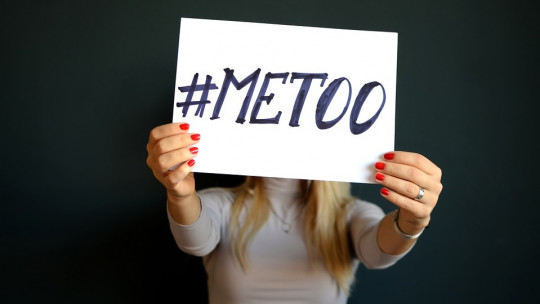
Abuse and mistreatment are forms that seriously impact a person’s life. When there is someone who exercises some type of violence on a victim, the latter experiences high levels of discomfort, accompanied by physical, psychological or emotional damage, which could affect their other vital areas and bring long-term consequences. In abusive relationships, whether between family members, partners, bosses-employees or teachers-students, there is an asymmetry in which one of the two parties obtains a benefit at the expense of the abuse of the other. There are many ways to commit abuse, and each of them has a series of characteristics that allow it to be discriminated from others. For this reason, in this article we will see how to identify types of abuse and what are the consequences of suffering any of this abuse.
Keys to recognize the types of abuse
Victims of abuse share the common denominator of presenting high discomfort due to the violence exerted on them. It is important to note that the victim is never responsible for suffering abuse from another. Although there could be certain individual factors that are involved in how the victim behaves in relation to the aggressive person (such as his personality, or the way in which he has learned throughout his personal history to bond), he does not become the responsibility or guilt that in some problematic discourses tend to be attributed In fact, in many cases, victims of abuse are not even aware of the dynamics in which they are immersed, or in other circumstances, they are minors who do not have sufficient tools to ask an adult for help. This is a delicate issue but one that, nevertheless, requires being stated to be addressed in a responsible and public manner. Below we present the main types of abuse and their characteristics.
1. Abuse of power
Abuse of power is one of the most common types of abuse. It usually occurs in the work environment, but it could also occur within the family. It can be determined that supervision is abusive, according to Tepper, when a subordinate person – employee, child – perceives the deployment of hostile behaviors by another person, both verbal and non-verbal, on a sustained basis over time.
Someone can identify that they are a victim of abuse of power when the other person publicly criticizes them, yells at them or has violent emotional outbursts as a result of their behavior, addresses them in an aggressive manner, makes unempathetic decisions without considering how they will affect them, and It exercises coercion, that is, it pressures and forces the victim to do something that the victim does not want.
This construct has been taken to the empirical field, where It has been confirmed that people who perceived their supervisors to be more abusive were also the most likely to leave their jobs If they did not do so, it was because the situation of abuse of power was generally sustained by economic dependence, as usually occurs in the family environment. Regarding this research, which focused on the abuse of power in the workplace, it was found that abusive supervision was related to lower satisfaction in work and life, lower normative and affective commitment, and conflicts between work and life. and family and higher levels of psychological stress.
2. Psychological abuse
Until not too long ago, violence was conceived as an exclusive phenomenon of the physical plane. However, psychological abuse is a prior instance to physical abuse. Different investigations have shown that it is an important predictor of physical violence, since it rarely occurs without psychological violence having previously occurred. Psychological violence can be seen in all types of human relationships, but The seriousness of this type of abuse is the fact that it usually comes from those people whom the victim initially expects to be support figures, such as partners, siblings or parents
Of course, psychological abuse can last over time, chronically, without ever leading to physical abuse. This does not make the suffering lighter, but quite the opposite: it could be more subtle and difficult to put into words than physical violence. Psychological abuse is a form of abuse that affects the mental health of the person and whose consequences are comparable to those of physical abuse. The fact that one person is emotionally dependent on the other and that one of the two also exercises psychological abuse is, for some authors, “the most destructive mixture that could exist in a relationship.”
3. Abuse of trust
Abuse of trust is a form of abuse that is often common in work environments. In general, it is possible to identify abuse of trust in companies or organizations when an individual obtains their own benefit from an object that does not belong to them, which in some cases may lead to theft or robbery. When there is a breach of trust, There is a person who has been granted certain rights (the trust itself) but who nevertheless uses them to obtain an illegitimate benefit For example, a business employee could leave the store two hours before closing time without his boss finding out, obtaining that benefit because they are friends or because there is a very good relationship between them.
Beyond this, the structure of abuse of trust could be extrapolated to other areas beyond work; that is, it is not reduced to him. In a couple, abuse of trust could be observed from arguments caused by the management of money, passwords or security keys, time, etc.
4. Sexual abuse
Sexual abuse is a violation of fundamental human rights that seriously affects people. It is the most traumatic form of abuse in children, with short and long-term repercussions, which leaves a mark related to greater chances of suffering from a mental disorder in the future and affects not only the victim, but also his family and society. For this reason, it is necessary to place this problem on the public health agenda. The way to identify sexual violence is in any situation in which a person carries out conduct that threatens or violates the right of another person to decide and exercise voluntarily everything that relates to their sexuality.
5. Physical abuse
Physical abuse is another of the loudest ways in which mistreatment can manifest itself. Perpetrators of physical abuse are usually family members, primarily parents, but also partners or strangers. Victims of physical abuse have serious health consequences both in a physical dimension (it has been found that they tend to suffer from chronic fatigue and health problems in general), but above all psychological (low self-esteem, depression, suicide ideation and attempts, and a greater likelihood of falling into an addiction).








